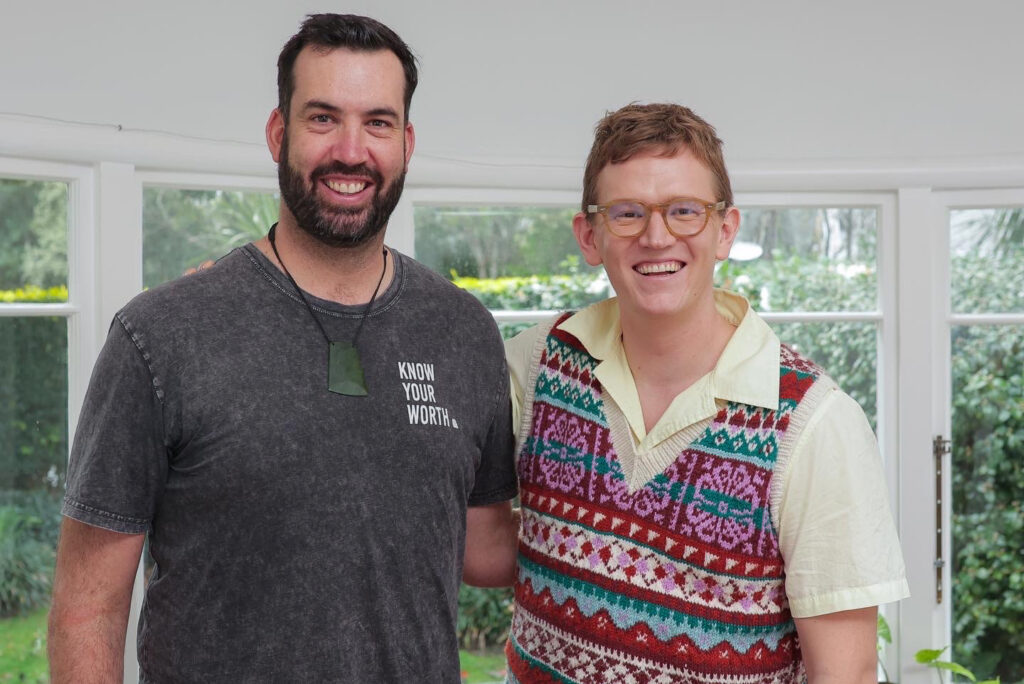Shifting the culture of criticism
Kiwi Jay Geldard is on a mission to eradicate tall poppy syndrome. He wants the culture gone and thinks it’s time for Kiwi to be proud of their achievements both in New Zealand and offshore. His charity E Tū Tāngata (Stand Up Together) is working with Kiwi in organisations and schools around the country to showcase the importance of individual value and help people better understand that a rising tide really does lift all boats.
Previously a youth worker, Jay has worked with kids for most of his life and has seen first hand the impacts of New Zealand’s mental wellbeing crisis. However, it wasn’t until he travelled to the UK in 2018 that he started to really question why.
“People I met overseas couldn’t understand how living on a beautiful, isolated island at the bottom of the world could hold such dark issues with mental wellbeing. I told them that we have one of the highest suicide rates in the world and that 25% of our young people are depressed, anxious and fatigued. They didn’t understand how that could add up. It made me angry about the state of our nation, I knew it was wrong, and I knew I had to do something about it.”
Jay started having some serious conversations about tall poppy syndrome with some of those who experience it most frequently – Kiwi sporting stars and kids in schools.
“I went and surveyed 500 teenagers and asked them what would make them most comfortable, if I put them down and called them an idiot, or if I gave them a compliment. Seven out of 10 chose the insult, I just remember thinking how broken that was. I also spoke to some of our sporting elite like Gold winning Winter X Games athlete Jossi Wells who told me a big part of the reason he spends so much time offshore is to remove himself from the criticism he receives in New Zealand, former All Blacks Coach Steve Hanson feels tall poppy syndrome is one of the most critical conversations we need to have as a nation, and UFC middleweight champion Israel Adesanya is so passionate about it he called the phenomenon out during his Sportsman of the Year speech at the 2019 Halberg Awards.”

And it’s not just kids and famous Kiwi, Jay says he’s also spoken to a number of returnees who come home to New Zealand and feel trapped by the culture.
“Kiwi who come home say they feel like they have to downplay everything they have achieved. Some even consider not coming home because of it. That has to change, we should be creating an environment where, when New Zealanders come home, we celebrate them representing us on the world stage.”
To support his work Jay has got some big names on board including top Neuroscience Educator Nathan Wallis who says tall poppy syndrome is stopping people from becoming their best.
“Tall poppy syndrome is harmful, because kids get this idea that it’s not okay to dream big. And I think that’s that culture kicking in, telling them you’re not supposed to stand out above your peers. Dreaming is just such a basis of everything we achieve, you achieve what you dream for, and if you dream mediocre because you have been taught by everybody else that that’s what you are supposed to do then you achieve mediocre. So many people could be successful if we didn’t have this culture that told them, “no you can’t.”
E Tū Tāngata became a stand-alone charity in 2023 and Jay says they have already made significant strides, transforming the lives of Kiwi youth and adults alike by challenging the culture through modules and workshops in schools and organisations.
A school principal working with the E Tū Tāngata organisation recently shared that a troubled student, after being told he was valuable during a tense moment, expressed appreciation for the school seeing his value even when angry. Since working with the charity that same school has seen attendance rates rise from 40% to 90%.

At another school a teacher began asking her students to write down what part of themselves they were proud of each day, the notes were placed on the classroom wall as a reminder. The teacher told Jay one of her students continues this practice in her bedroom at home and has a wall full of notes that remind her of her value everyday.
“These are just a couple of examples of us tackling tall poppy syndrome, and it’s proof it’s working. It’s working for teachers and students, and that impact filters out to others. We have nothing to lose by telling people they have value, because we’ve spent generations not doing it.”
If you’d like to find out more about E Tū Tāngata and support the work they do you can visit their website.

 MENU
MENU









